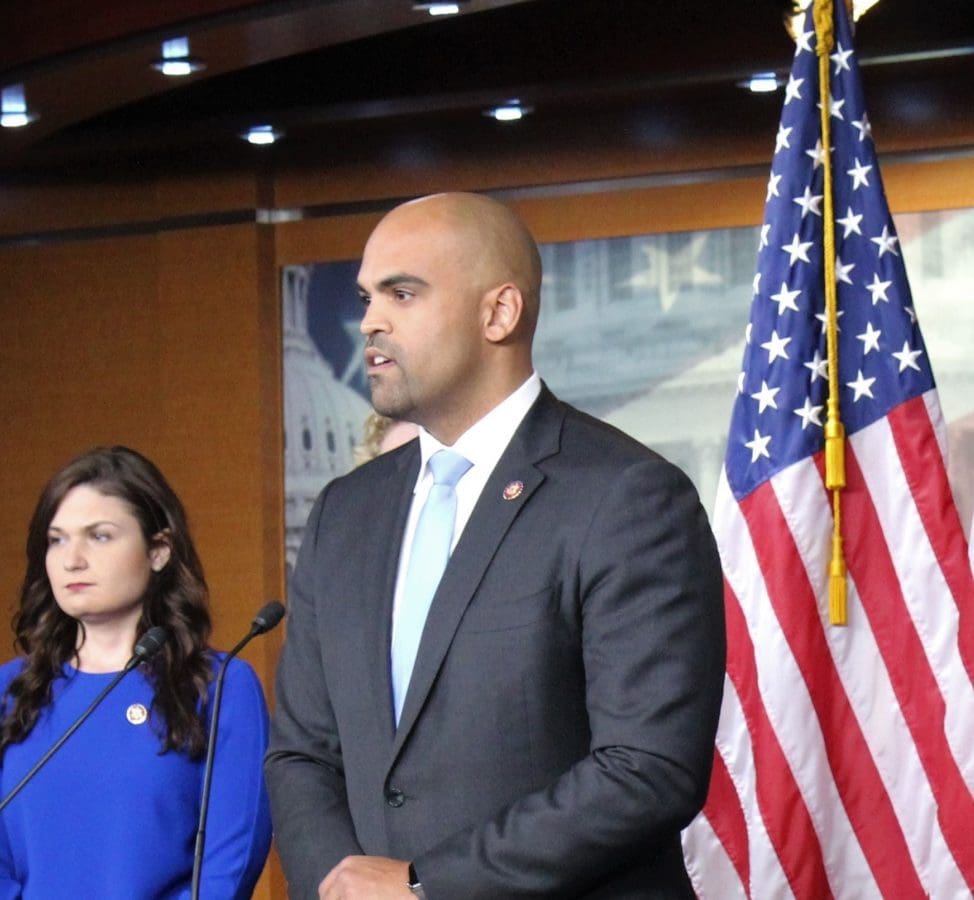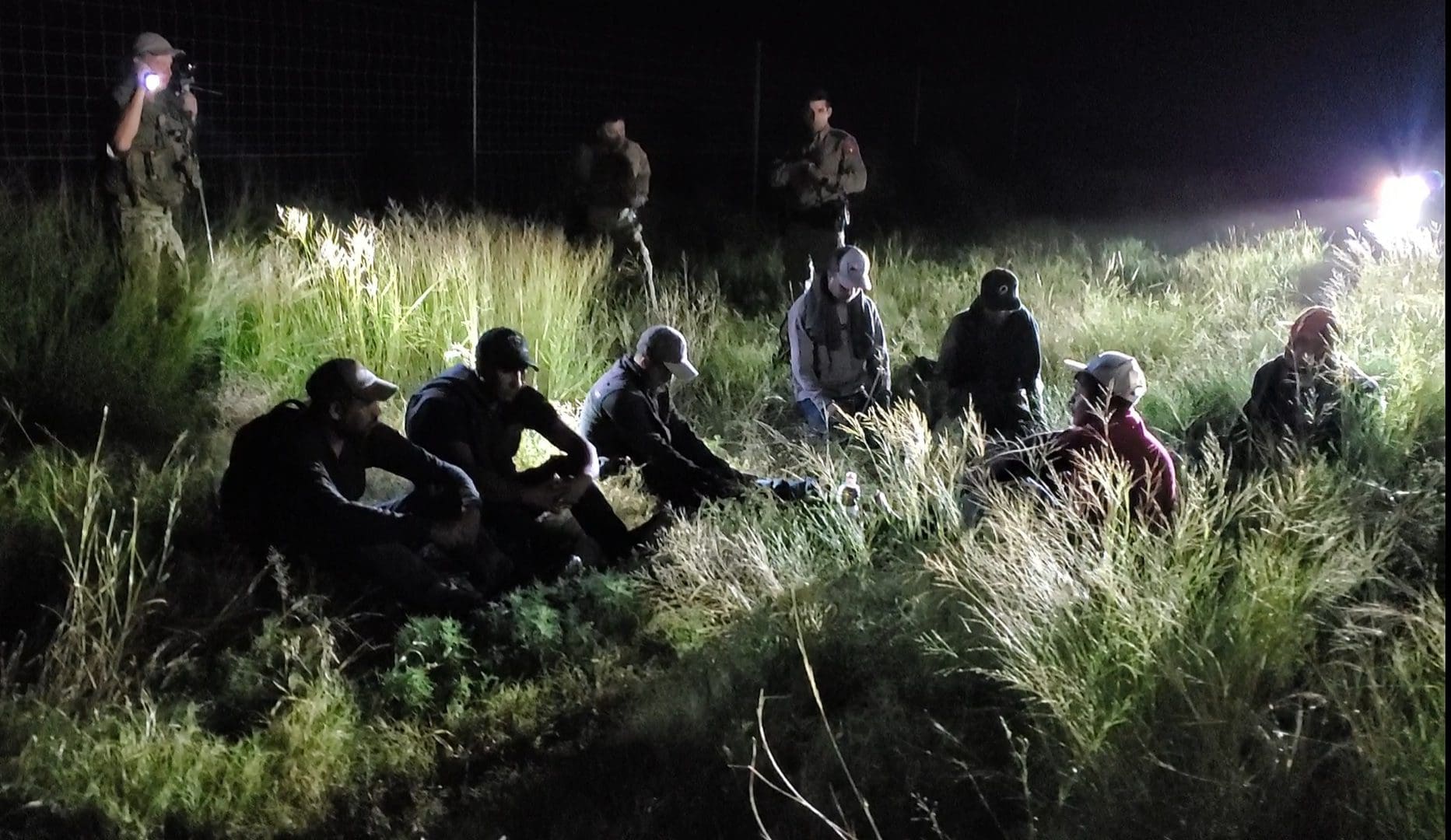As President Joe Biden’s open border crisis continues with rising numbers of illegal border-crossers, Todd Bensman, senior national security fellow for the Center for Immigration Studies, highlights the immense national security threats of an unsecured border.
While speaking at Uncensored: The Border Education Summit last week in Austin, Bensman said, “Forty-eight percent of everybody reaching our borders are from 150 other countries. That is a national security threat.”
Bensman explained that Mexicans and South Americans aren’t the only groups illegally crossing the border; he also sees people from places like the “Islamic Republic of Mauritania.” He added that he has “probably met somebody from every country on the African continent.”
“Why does that matter?” he asked.
Because Africa’s a basket case. A lot of those countries are a basket case.
Additionally, illegal aliens are tossing their passports and other identification on the Mexican side of the Rio Grande River. Bensman says he can collect a grocery sack full of IDs on any given day.
According to Bensman, they toss their paperwork to commit asylum fraud, because an ID would disqualify them from a credible fear interview (where Border Patrol determines whether they are in danger of persecution if returned to their home country).
However, “the more important point is that these are total strangers to us,” he said. “We are meeting them for the first time at the border with no name.”
“The suburban housewives call [that] stranger danger,” said Bensman. “I worked for the Texas Department of Public Safety for 10 years in the intelligence counterterrorism division, and we call that risk. We call that threat management. We call that a problem. That is a homeland security problem when you have people from every country in Africa showing up at your border with no ID.”
Bensman highlighted the case of a Liberian man called Jungle Java, who lied his way into the U.S. on an asylum claim in the late 1990s during the Second Liberian Civil War and was sentenced to 30 years in prison just two years ago.
He commanded a unit that specialized in cannibalism. That guy would cut out the hearts of his innocent victims and cook them, and eat them. … He was raping and enslaving civilian women and children. Murdering everybody he came across that he felt like murdering for years, he and his troops.
“This guy is a war criminal,” said Bensman. “And he lived here for years.”
Bensman relayed a similar case of another Liberian man called Master Dragon, who has just been arrested in the U.S. and is awaiting trial.
Master Dragon would just go into a village with his militia and just slaughter everybody, just for the heck of it. Just to slaughter them because it was something to do—target practice.
Another case focused on an Ethiopian, a member of the Derg, who ran torture chambers around the country and suppressed political dissent, was just found in the U.S. on an asylum claim.
“Our system is not cut out for this,” said Bensman. “The Africans that are coming to our border with no identification, saying that from countries where that sort of thing is happening right now. We don’t know whether they are victims of victimizers. We will never know.”
Bensman acknowledged there are Africans fleeing legitimate persecution, but by incentivizing no identification, there is no way to tell if they are a victim or a war criminal.
And war criminals aren’t Bensman’s only concern. Espionage is also a possibility, since illegal aliens are coming into the U.S. from places like Syria, Iraq, Pakistan, Iran, Russia, Ukraine, and China.
They’re coming in from countries that are adversarial to the United States’ national interest.
“We had 17,000 Russians hit our border [in] the last couple of months,” said Bensman when remarking on Russia’s “aggressive intelligence service.”
“We have 30,000 Ukrainians. Ukrainians come into the border because they know it’s easy. But if you’re thinking like I do, you know from a national security perspective, the Ukrainians are notorious for the Ukrainian mob.”
“It’s not just African war criminals. It’s espionage. We, as sure as I’m standing here, have imported spies from China, Iran, and Russia here. They’re here and they came in over the border, and we’ll find out about it eventually.”
Just this federal fiscal year, 66 illegal aliens were found to be on the FBI’s terrorist watchlist, which means they are a terrorist or they were found to be associated with terrorists during an investigation.
Although 66 may not seem like a high number in the context of millions, “that’s four times the number that conducted the 9/11 attacks,” said Bensman. “It doesn’t take many of those people to conduct an attack here to send our country off to war in Afghanistan for 20 years. The consequences of a few of these guys doing something like that are tremendous to our country.”
Bensman says that under normal circumstances, the FBI and Immigrations and Customs Enforcement (ICE) would investigate the asylum-seekers and find identification if possible. However, “that system is off the rails,” he said. “That system is destroyed right now under this border crisis.”
Relating the story of a Lebanese-born Venezuelan called Isam Bosse, Bensman explained how Bosse was on the FBI watchlist, placed in ICE detention, found to be high risk by the FBI, and was then released against FBI recommendation after a phone call from Washington, D.C.
“He’s walking around now free in Detroit, pursuing an asylum claim,” said Bensman. “Even to this day, nobody’s gone to pick him up.”
The systems that protect us are broken, faltering, or non-existent to do any of this national security work properly. That is the problem.
“There is a very simple solution to this problem,” said Bensman, explaining that a state department or U.S. Department of Homeland Security operation could cut off traffic from South America relatively quickly by stopping these caravans of migrants in Panama, Costa Rica, and Nicaragua—bottlenecked countries with oceans on either side.
What the United States has to do is to create air deportation operations in all three countries at their borders—cheap, easy, effective.
“I’m not talking about sending them back to Colombia,” said Bensman. “I’m talking about sending the Africans back to Africa, right back across the ocean. The Haitians back to Chile or Brazil or Haiti—wherever they’re coming from. People from the Middle East all the way back to the Middle East,” said Bensman, explaining that this should be taking place at the Colombian border, then the Panamanian border, and then at the Costa Rican border again.
“There are airfields, military airfields in all of those places. I’ve seen them,” said Bensman. “We could, for a relative pittance of an investment, put ICE aircraft in all three of those countries and require those countries diplomatically—just like Trump did with Mexico—require that instead of facilitating them, [they] send them home, and we’ll do it at our expense.”
“My solution to this is diplomatic and a little bit of appropriations,” said Bensman. “When a terror attack finally happens or we end up with war criminals, and Ukrainian mobsters, and Russian spies … when we start to figure that out, the way to fix this is what I just said: knock them out in three different screenings. And then maybe have Mexico do it—just a boot from their southern border.”
Bensman and former U.S. Customs and Border Protection Commissioner Mark Morgan both highlighted that policy change, not unending resources, is the answer to the border crisis.




